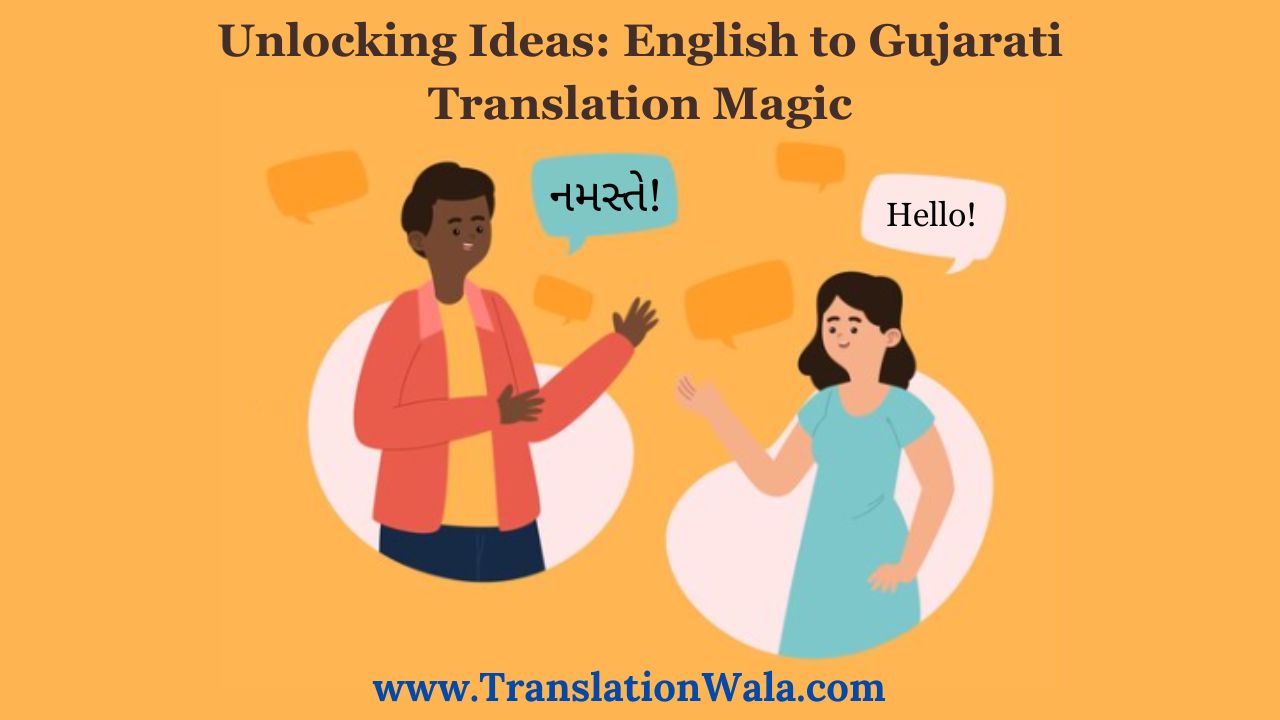Language is a beautiful fabric made of words and language that can bring people together, teach them, and excite them. What happens, though, when this fabric turns into a wall that stops the flow of information and knowledge? When you translate, you can bridge the gap between languages and countries, which can lead to a rich trove of ideas and information. This piece explores the interesting world of English to Gujarati translation and looks at how it can help people and groups.
Unveiling the Gujarati Language: A Cultural Gemstone
Gujarati is spoken by more than 60 million people around the world. It is the official language of the state of Gujarat and the sixth most common language in India. It has a rich literary history with well-known writers like Mirza Ghalib and Rabindranath Tagore, and its film business makes millions of people happy. But, even though Gujarati is an important part of culture, it can be hard to get material in that language, especially for people who mostly read things in English.
Also Read: Bridging the Gap Between Minds and Cultures: English to Hindi Translation for a Better World
Bridging the Gap: The Power of English to Gujarati Translation
Translation from English to Gujarati is a great way to get past these language obstacles. Translators help Gujarati people learn and show themselves by translating important papers, school materials, and artistic works. Imagine that a student could read important academic texts in their own language, a businessperson could understand complicated legal papers, and a literature lover could get lost in Shakespeare’s works. All of this is possible thanks to the magic of translation.
Benefits Abound: From Education to Entertainment
English to Gujarati translation has effects that go far beyond giving people more power. It encourages cultural interaction, which lets Gujarati groups interact with thoughts and ideas from around the world. Translated school materials help more people learn to read and write and give kids the skills they need to succeed in a globalized world. Business papers that have been translated help the economy grow and trade between countries. Even entertainment that has been translated, like movies and books, makes people better people and helps them understand other cultures.
Challenges and Considerations: Ensuring Accuracy and Nuance
There are problems with translating from English to Gujarati, but there are also perks. It is very important to be accurate and keep the subtleties of the original text. Like any other language, Gujarati has its own grammar, phrases, and cultural references that need to be taken into account when translating. Even though machine translation is getting better quickly, it still has trouble with these details. Human interpreters are still needed for high-quality translations because they know a lot about both languages and cultures.
Also Read: English to Punjabi translation: Translate with confidence
The Future of Translation: Technology and Human Expertise
These tools are getting better all the time because technology is always changing. But the human touch will always be important to make sure that translations are correct, sensitive to other cultures, and creative. The future lies in a joint method where technology helps human interpreters do more difficult jobs that need cultural knowledge and good judgment.
Conclusion: A World of Possibilities Awaits
English to Gujarati translation is more than just changing words from one language to another. It makes a lot of things possible. Translation gives people more power, promotes cultural exchange, and moves things forward by breaking down language obstacles. When we accept the magic of translation, we make the way for a future full of understanding, teamwork, and shared knowledge. Let’s enjoy the power of language and the magic of translation, because they can open up a world of ideas for us and make our lives better in so many ways.
